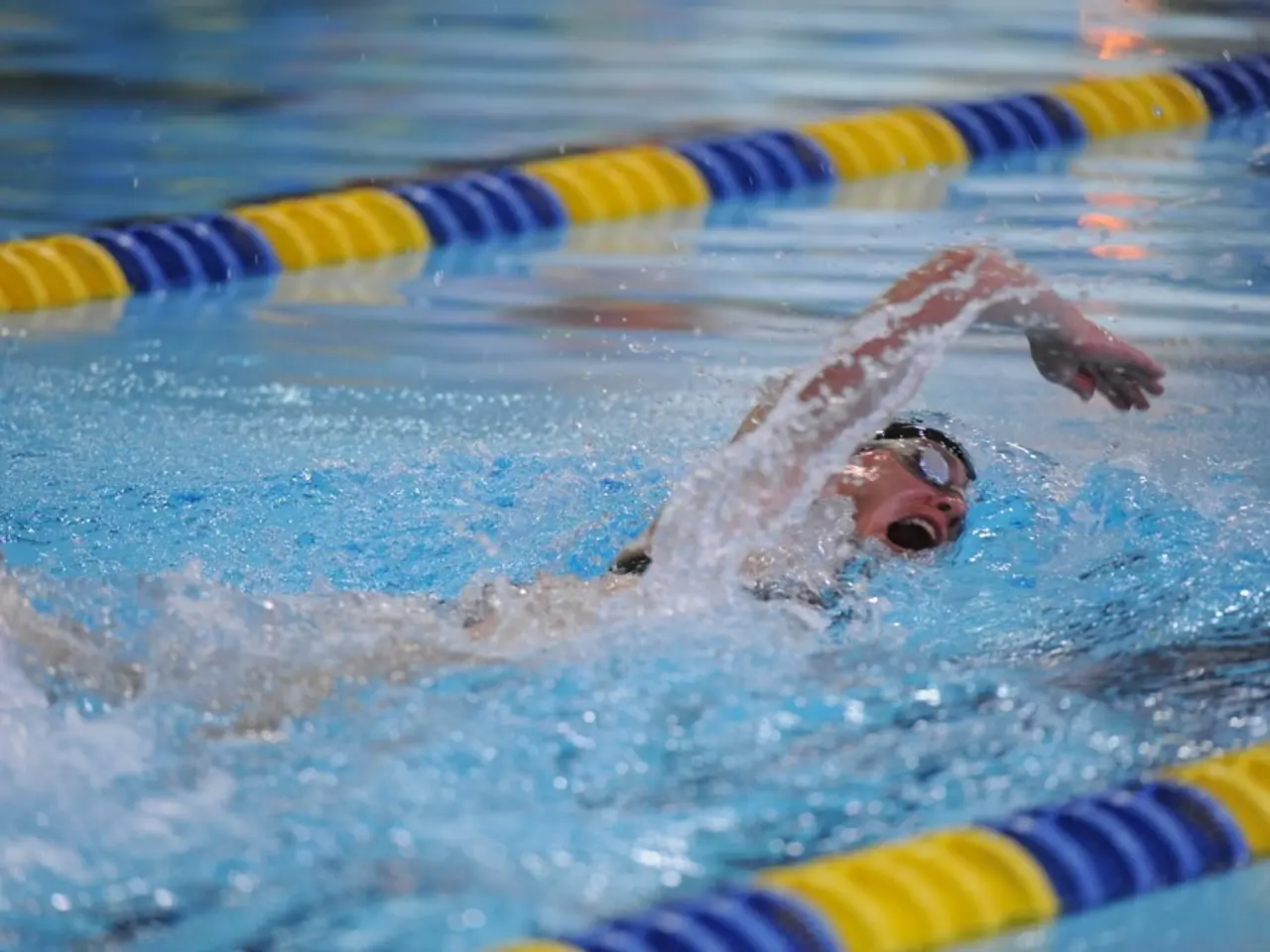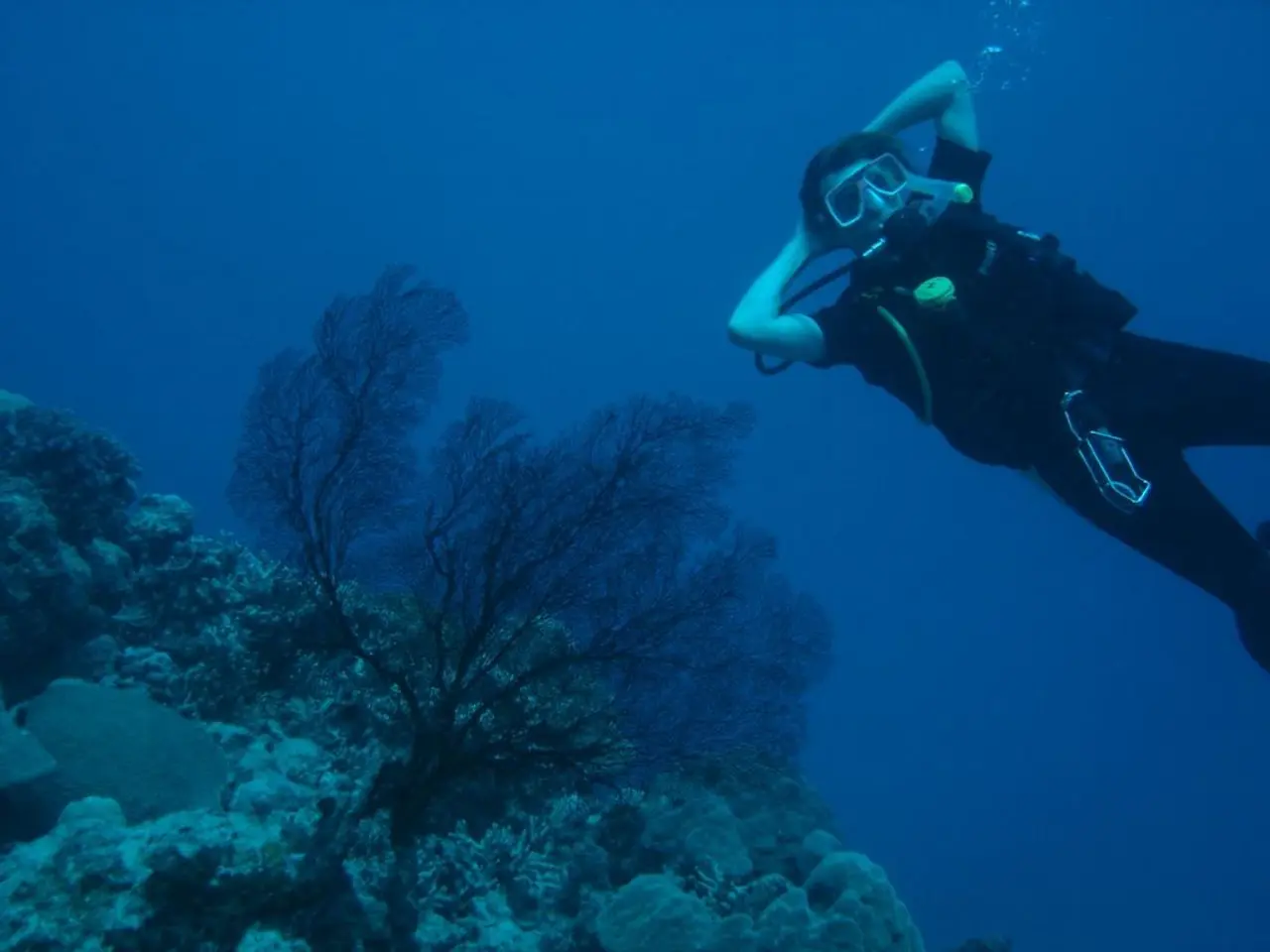River swimming in Wesel county prohibited.
In response to recent drowning incidents in the Rhine, County Wesel and its partners have taken steps to improve swimming safety in the region. The initiatives aim to ensure a safer experience for swimmers while preserving the river's natural beauty.
The first strategy involves water quality monitoring. Regular water testing is carried out to check for pollutants and bacteria, and the results are displayed at popular swimming spots. Clear signage is also provided to inform potential swimmers about the water quality.
Safety infrastructures and signage are another key focus. Designated safe swimming areas are marked with signs and buoys, and floating platforms or buoys are installed for rest and safety in these zones. Warning signs are posted about potential hazards such as strong currents, watercraft traffic, and prohibited areas.
Public awareness and education are crucial for swimming safety. Guidelines on safe swimming practices are being distributed, similar to those in Basel. Community engagement events are being organized to educate the public about river safety and the importance of respecting water quality.
Emergency response plans are also being put in place. Lifeguard stations will be established during peak swimming seasons, and emergency services will be easily accessible and equipped to handle water-related emergencies.
Collaboration with local authorities is essential for the enforcement of swimming regulations and the prohibition of zones. Community-led initiatives are also being supported to improve swimming safety and promote responsible river use.
Technological solutions are being explored to further enhance swimming safety. Water level monitoring technology is being used to provide real-time data on potential hazards, and swimming safety apps are being developed or promoted to provide safety information and real-time updates on swimming conditions.
County Commissioner Ingo Brohl emphasizes that the Rhine is not a bathing area. He states that the intention to deter people from swimming in the Rhine is undisputed. To this end, warning signs have been installed along the Rhine in Dinslaken, Voerde, Rheinberg, Xanten, and Wesel. These signs state "Swimming prohibited" in five languages: German, English, Turkish, Russian, and Arabic.
In addition, numerous public baths and lakes are available in County Wesel for cooling off in the summer. A list of bathing opportunities and waters can be found at [https://www.kreis-wesel.de/tourism/water-experience](https://www.kreis-wesel.de/tourism/water-experience).
It is important to note that swimming in the Rhine is not permitted at harbor entrances and similar places, but there is no general legal ban. Even standing in shallow water can be dangerous for children and adults in the Rhine. The "ban" on swimming in the Rhine is not enforced, but a campaign for a general ban on bathing in the Rhine is ongoing in Düsseldorf.
By implementing these measures, swimming safety in the Rhine can be significantly enhanced, ensuring a safer experience for swimmers while preserving the river's natural beauty.
The local authorities are also focusing on 'science' and 'health-and-wellness', using 'technological solutions' to further enhance swimming safety. For instance, water level monitoring technology is being used to provide real-time data on potential hazards.
In terms of 'general-news' and 'crime-and-justice', clear signs have been installed along the Rhine stating "Swimming prohibited" in five languages: German, English, Turkish, Russian, and Arabic, to deter people from swimming in the Rhine.




